Sometimes Kamala Harris wakes up in the middle of the night because there’s something on her mind. Did anybody get back to so-and-so? How is my stepdaughter adjusting to her apartment in New York City? Sometimes those early-morning moments are her only chance, as the junior Senator from California and a top Democratic presidential candidate, to think through the events of the past day.
“Oh, I worry,” she says, “I worry.” Sitting at a table upstairs from the stage where she’s just held a town hall in Waterloo, Iowa, Harris begins to laugh, that deep, body-shaking laugh of hers. “Let me just tell you, I was born worrying. I had a mother who worried, I had a grandmother who worried. It’s kind of in my blood.”
That jolt awake at 3 a.m. has become Harris’ campaign theme, the crux of her wandering stump speech. What wakes the American people at 3 a.m., she says, is not ideological mudslinging but practical concerns: holding down a job, getting through a health crisis, weathering hurricanes and tornadoes. Harris’ “3 a.m. agenda,” as she calls it, is the backbone of her campaign’s policy approach, a road map of solutions for the middle class. But so far it has failed to get much traction. At a time when the electorate is looking for sharp definitions and ambitious visions, her emphasis strikes some Democrats as vague and noncommittal.
And so Harris is here, in Iowa, trying to regain her footing in the race. After a promising start in January, her campaign has stalled. While she is in the competition for the nomination, she’s stuck in the mid–single digits in most national and early-state polls and draws modest crowds. Perhaps three dozen people showed up to see her in Waterloo, where they were packed into a few rows in front of the stage so that the large room–an ornate century-old former department store–wouldn’t look so empty.
In mid-September, Harris said she’d be focusing on the first-to-vote caucus state. It was something of an unwitting announcement: she was overheard in Washington joking to a colleague, “I’m f-cking moving to Iowa.” (At least, a staffer quipped, “she didn’t say, ‘I’m moving to f-cking Iowa.'”) Her campaign is doubling its staff in the state, to more than 130 people, and she has pledged to visit every week for the foreseeable future. “I’m really excited about it,” she tells me, saying the opportunity to engage in “old-school retail politics” reminds her of her San Francisco political roots. “I like people.”
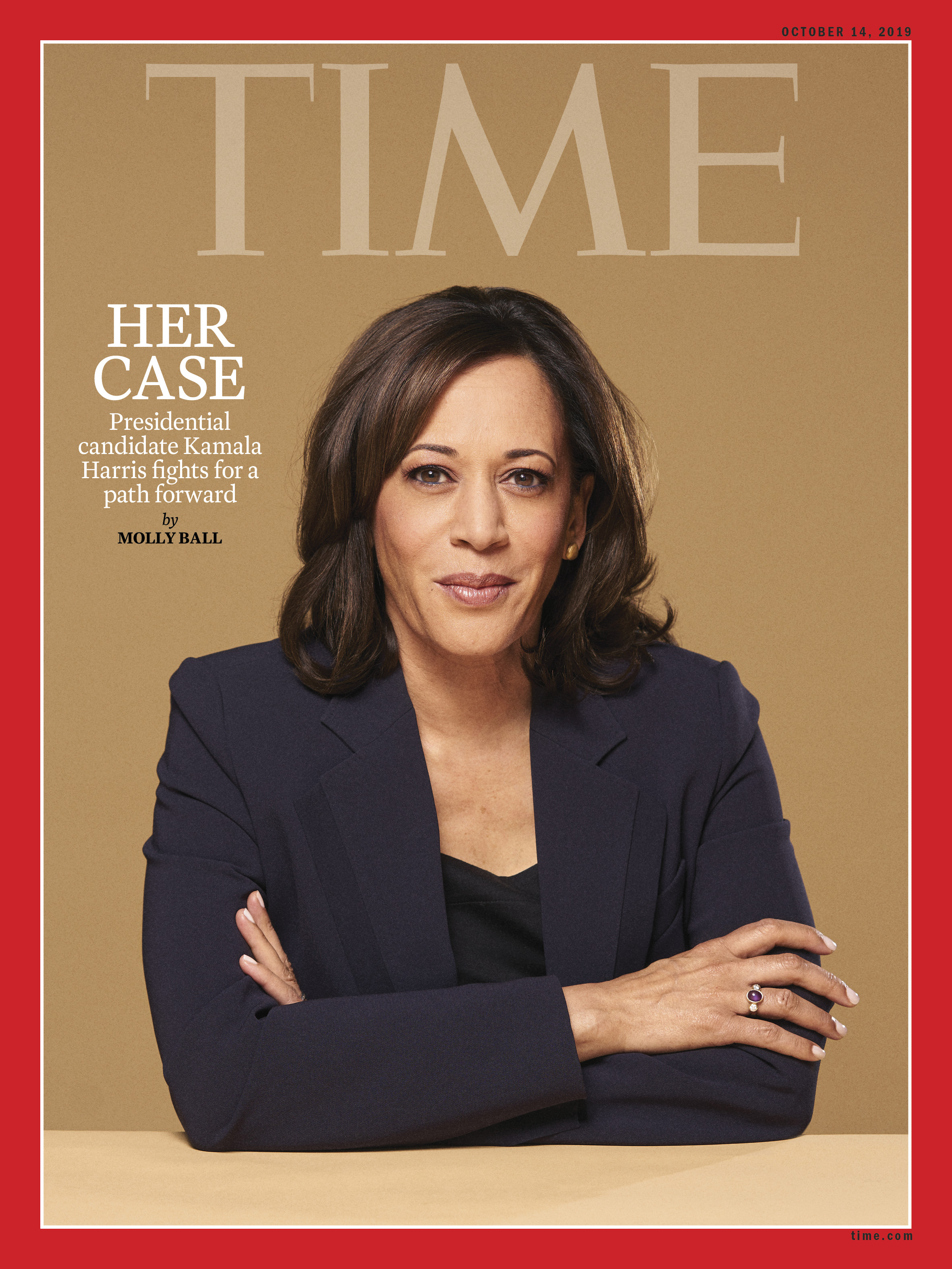
People like Harris too; they just can’t quite place her. Like the acquaintance you recognize but can’t recall how you met, she seems both familiar and yet mysterious. Is she a liberal or a moderate, establishment or populist, reformer or radical? Critics point out that she has flip-flopped or obfuscated her positions on important policy issues, like health care and immigration, and the speeches she could use to define herself often devolve into paeans to unity.
For all that, however, Harris remains in the hunt. She consistently polls among the top five candidates in the jumbled Democratic field, and she has the financial resources to remain viable. Her campaign raised $11.6 million in the quarter ending Sept. 30–a respectable haul, although far short of what some other front runners pulled in. As more long-shot candidates bow out of the race, campaign officials expect Harris to benefit from voters’ renewed focus. With a little luck, they say, she still has a fairly clear path to the nomination.
Among the top-polling Democrats, some churn seems inevitable. Former Vice President Joe Biden remains the apparent front runner, but his unsteady debate performances and shambling campaign have many insiders convinced he’s on the brink of collapse. When and if that happens, the next leading candidates, Elizabeth Warren and Bernie Sanders, could face a rebellion from mainstream Democrats who see them as too left-wing. In such a world, Harris would be well positioned as the alternative: a practical idealist with undeniable political skills and a respected track record of problem-solving rather than grandstanding. As a 54-year-old black woman, she also offers a compelling profile for Democrats hungry for diversity and fresh faces. Among the top-tier candidates, who also include Pete Buttigieg, she is one of two women and the only person of color. And she’s younger than the three septuagenarian front runners by a decade and a half.
Meanwhile, as the Democrat-controlled House of Representatives moves toward impeachment, another piece of Harris’ record may supercharge her candidacy in the coming months: her background in law enforcement. At a time when liberals are clamoring to make the criminal-justice system less punitive, her record as a district attorney and state attorney general has been a liability. But in this new political climate, voters may relish the idea of seeing Harris–with her icy prosecutor’s glare–square off against President Trump on the national stage.
“This guy has completely trampled on the rule of law, avoided consequence and accountability under law,” she says of the President. “For all the sh-t people give me for being a prosecutor, listen. I believe there should be accountability and consequence.”

Harris lives in Los Angeles now, where her husband of five years, entertainment lawyer Douglas Emhoff, is based. L.A. is only the latest of many places she’s put down roots, she tells me in an interview in a law office on the city’s west side. But home, to her, always conjures memories of a Berkeley duplex where she lived with her mother and sister above a nursery school.
Born in Oakland, Harris had an itinerant childhood, moving from California to Illinois to Wisconsin to Montreal as her parents pursued academic careers. Her mother and father were both immigrants who came to the U.S. to attend the University of California, Berkeley. Shyamala Gopalan, Harris’ mother, came from India to get a Ph.D. in nutrition and endocrinology, while Donald Harris, her father, came from Jamaica to study economics. As a result, most of Harris’ family members were overseas. She learned, like many children of immigrants, that family and community aren’t necessarily something you are born into; they are something you make. Her memories are replete with references to surrogate grandmas and second mothers, godparents and godchildren, aunts and uncles, none of whom are related.
Harris’ parents met in the 1960s in the civil rights movement. Both were members of a small group of students who met to discuss black consciousness and liberation. They were unabashedly radical: the group’s heroes were “Malcolm, Fidel, Che,” says Aubrey LaBrie, a leader of the group. Some in the group were involved in the founding of the Black Panther Party, he says. Now in his 80s, with graying braids and a voice made hoarse by Parkinson’s, LaBrie remembers Harris’ parents as committed activists, joining in a protest of the local Woolworth’s to express solidarity with a sit-in at a segregated lunch counter at a Woolworth’s in the South. Gopalan, who died of cancer in 2009, was “very feisty, strong-willed, very assertive,” he says.

Harris recalls being steeped in her parents’ activism. In speeches, she says she remembers being surrounded by “a bunch of adults who spent all their time marching and shouting–for justice!” Once, she told me, she came down the stairs of her childhood house in Berkeley to see free bobby carved in wet cement, after the Black Panther leader Bobby Seale was arrested.
She was also on the front lines in her own way. In 1970, when she entered first grade, Harris was in the second class of children to be bused across town to integrate an elementary school that had previously been 95% white. It was a 40-minute journey each way. She did not, at the time, understand that she was a pawn in grownups’ sociopolitical experimentation–a lack of trauma that, she jokes, presents a challenge in politics. “People are like, ‘Tell us your suffering, tell us how hard it was,'” she says. “But I was raised by proud people. I was raised to know and believe we had everything we needed.”
It’s easy to see how this upbringing shaped Harris’ standing as an outsider–someone who had to convince others she belonged, no matter where she was. But she was the kind of outsider who was determined to get inside. She was always trying to find commonalities, even as she was aware of the difficulty of making herself understood in different contexts. “The reality is that when you are the so-called minority,” she says, “you learn many languages, necessarily.”
While others, including her own mother and sister, a former American Civil Liberties Union leader, sought to protest and advocate from outside, Harris worked to find her way into institutions where no one like her had ever been in charge. After graduating from Howard University, the historically black college in Washington, D.C., and the University of California’s Hastings College of the Law, she became a prosecutor, first at the DA’s office in Oakland’s Alameda County and then in San Francisco. In 2003, when Harris announced she would run for San Francisco DA against her former boss, many of her liberal friends balked. Lateefah Simon, who had worked with Harris to get police and prosecutors to treat underage girls in the sex trade as victims rather than criminals, remembers telling Harris she was disappointed by her decision. But Harris was unfazed. “She’d say, ‘Are you going to be outside all the time with a bullhorn, or are you going to be inside, deeply in the face of folks with decisionmaking power?'” Simon remembers. To Harris, Simon recalls, the way to make change was not to protest the system, but to take it over.
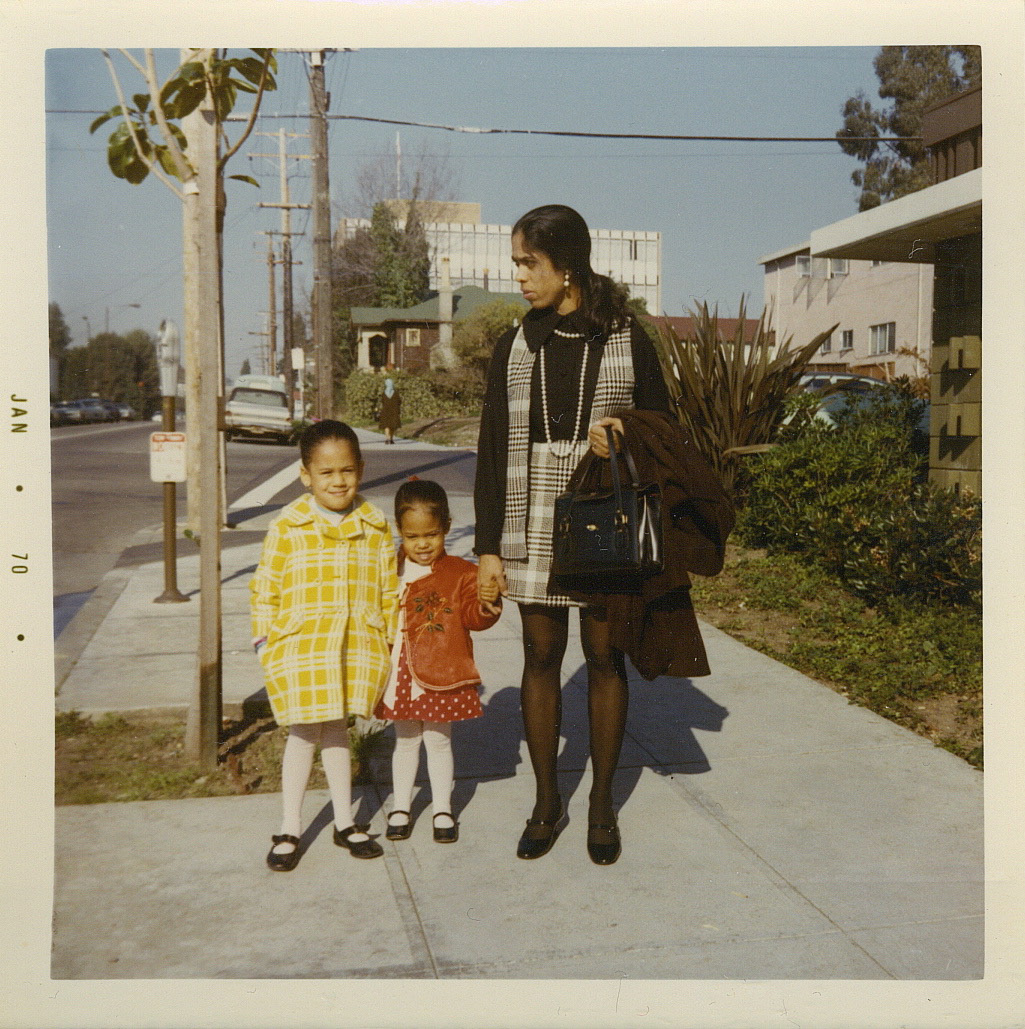
Harris’ underdog campaign did better than expected. Partly as a result of her relationship with her former boyfriend Willie Brown, the legendary California politician who was then speaker of the state assembly, Harris had cultivated a strong fundraising base among the city’s wealthy socialites. Brown, 30 years her senior and technically still married, had also appointed Harris to boards and introduced her to his political network when they were dating in the 1990s, sparking accusations of nepotism.
But Harris’ campaign was also uniquely her own. She put down her headquarters in one of the city’s poorest black neighborhoods, pounded the pavement and used an ironing board as a standing desk. She ran on a platform of restoring competence to the bumbling department and relentlessly criticized the incumbent for his low conviction rate for major crimes. She won in a landslide.
The law is written in black and white, but prosecutors have tremendous discretion to shape the way it is applied. It’s a prosecutor who decides to put sex workers in jail while letting their customers off. It’s a prosecutor who decides that a white teenager who kills is a good kid who deserves a second chance, but that a black teenager who commits the same crime is a predator who should be locked up for life. It’s a prosecutor who often decides that a woman who reports rape just doesn’t seem believable, even when there’s physical evidence. It was a prosecutor who decided, in 2008, that Jeffrey Epstein deserved essentially house arrest for the serial sexual abuse of dozens of young women. Modern reformers seeking to curtail mass incarceration increasingly argue that no amount of policy reform will fix a system whose decisionmakers are vulnerable to certain blind spots. When Harris took over as DA, Simon remembers her pointing out all the framed photos of past DAs along a wall. The portraits were all of white men until her face appeared at the end of the line, a 40-year-old black woman.
It would not be easy to bring a new perspective inside the system. Just a few months into her tenure as San Francisco DA, a young gang member killed a San Francisco cop in the same rough neighborhood where she’d headquartered her campaign. Harris, who had run on her opposition to capital punishment, announced she would not seek the death penalty. The decision sparked a major controversy that some thought would end her political career before it started. From the pulpit at the officer’s funeral, both California’s senior Senator, Dianne Feinstein, and the head of the police union called for the death penalty as Harris sat stunned in the audience. She stuck by her decision in the face of the firestorm, ultimately securing a sentence of life without parole.
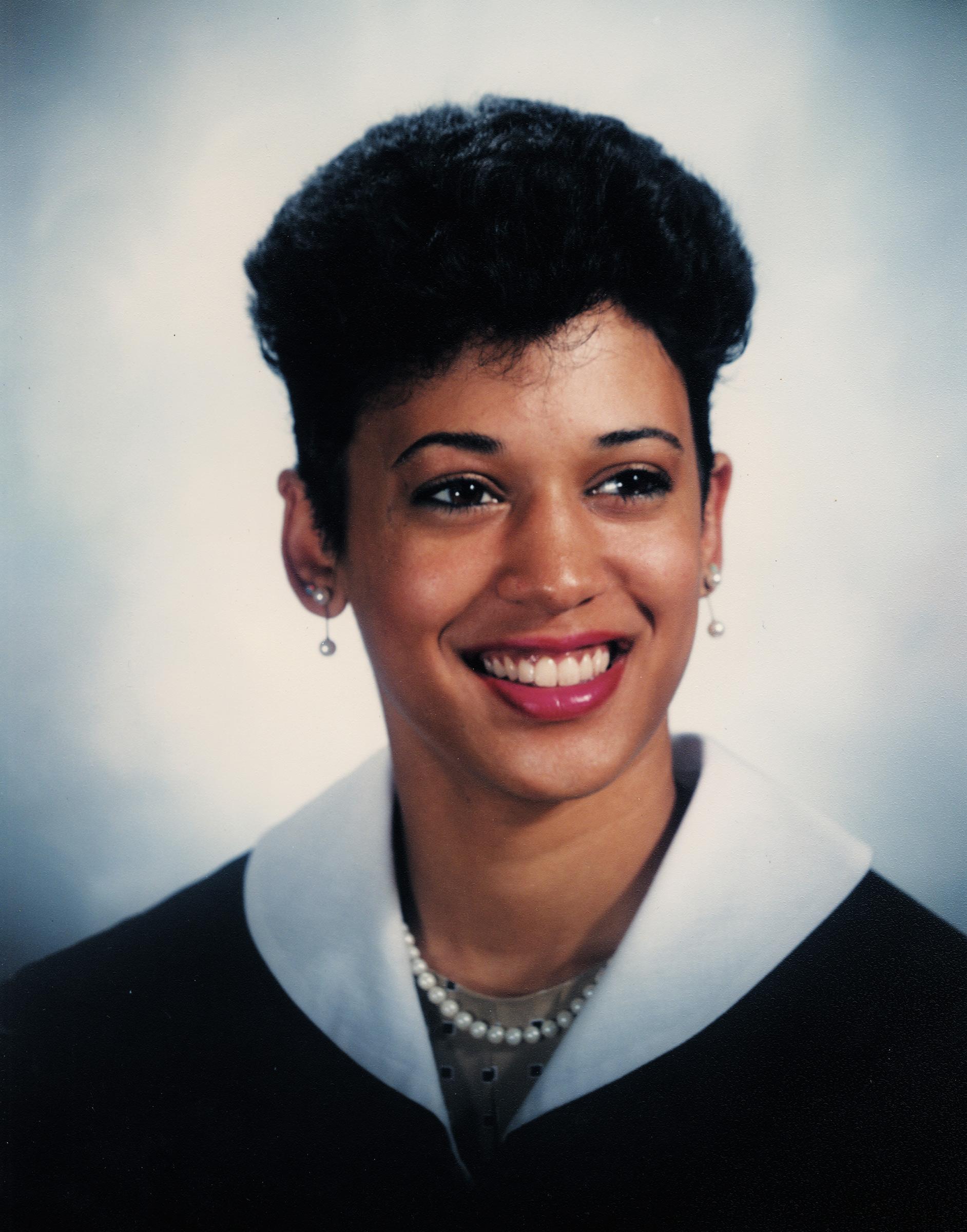
A couple of years later, as a wave of homicides swept the city, Harris again saw her convictions tested. While other elected officials proposed putting more cops on the street and beefing up gang enforcement, she wanted a new approach. “Instead of just accepting these statistics and reacting, I asked my team to tell me, Who are the homicide victims under the age of 25?” she says. Both the victims and the perpetrators, they discovered, had something in common: more than 90% were high school dropouts. Many started missing class in elementary school, quickly falling too far behind to ever catch up.
Seeing an opening, Harris began sending notices to the families of chronically truant kids. In meetings, her office’s representatives outlined the services that might help the family, but also reminded them that parents whose kids didn’t go to school were committing a crime and could be subject to fines and arrest. Even some members of Harris’ own staff considered her approach overly threatening to struggling families, but Harris blazed ahead. “She said to me, ‘[People] will stop for a stray dog before they will stop for a black child alone in the middle of the day,'” recalls Simon, the former colleague.
The thought of it still fills Harris with fury. “People had no expectations from these children,” she says. “They had no understanding of the capacity of these children. The system was not responding to what was in my mind a crisis. We improved attendance by over 30%. No parent ever went to jail. It was about what I could do, in my limited capacity, based on the position I had.” The controversy still dogs Harris, however, Exhibit A for liberals who say she punished those she should have been trying to help.
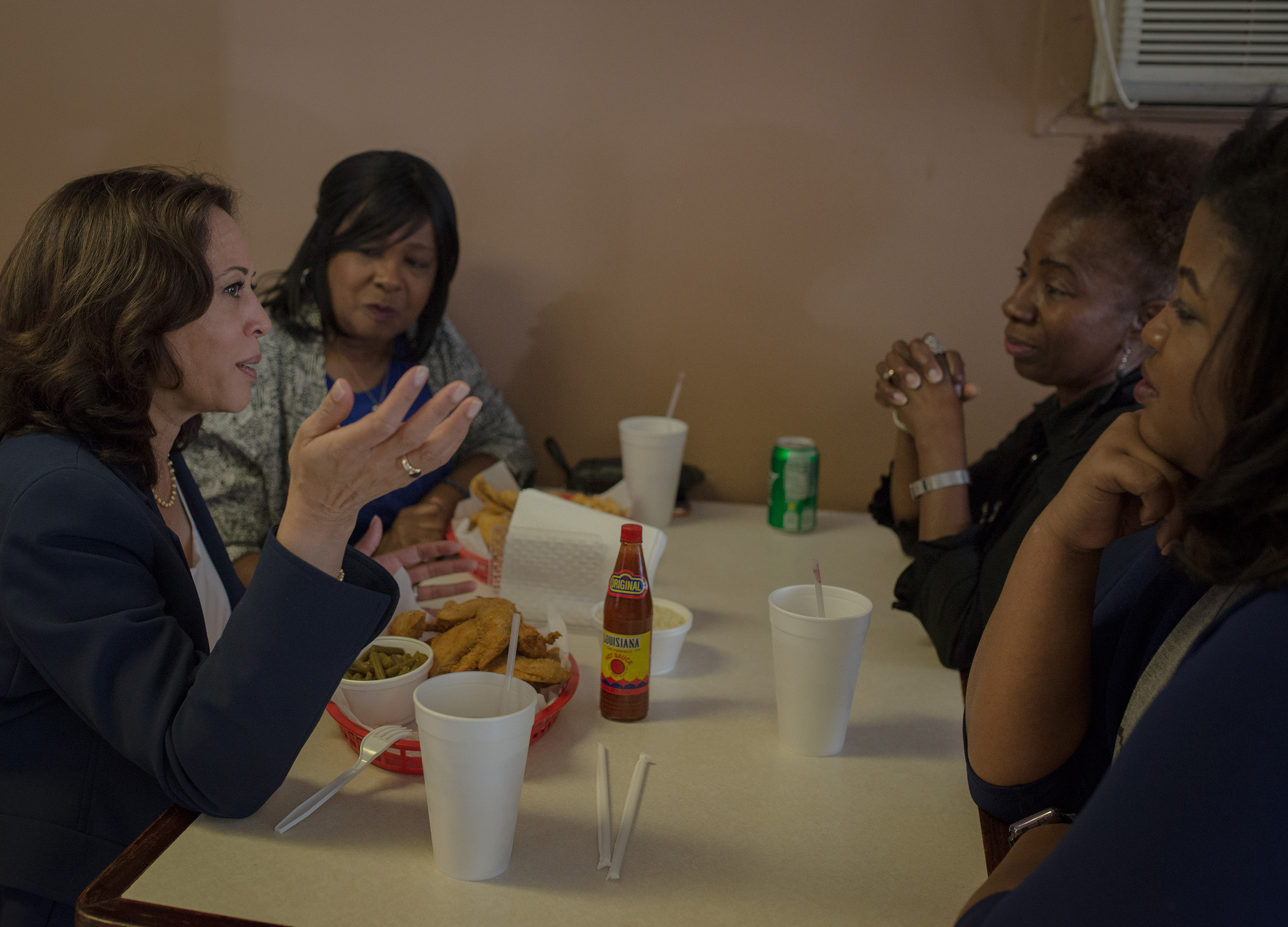
When Simon expressed her doubts, Harris would remind her of all the funerals she’d attended. For all the people you’ve buried, was anybody ever held accountable? The women raped and left for dead on street corners, who is going to see them? “Black people want law enforcement,” says Simon, who considers herself a prison abolitionist. “We just don’t want them to kill our children.”
After two terms as DA, Harris ran for state attorney general, winning a close race against the Republican DA of Los Angeles. As attorney general, she went after big banks and the pharmaceutical industry, for-profit colleges and oil companies. She refused to defend the voter-approved Proposition 8 banning gay marriage, paving the way for the Supreme Court’s 2015 decision legalizing it, and she created a bureau of children’s justice to oversee children’s services.
But she also backed down from many fights, declining to endorse ballot initiatives that would have reformed the three-strikes law and ended the death penalty. She even appealed a federal court decision striking down the death penalty as unconstitutional, successfully reinstating a penalty she claimed to oppose.
Criminal-justice reformers charge that Harris is cautious at best and hypocritical at worst, an ambitious pol who wants to have it both ways and lacks the guts to pursue bold reforms. A new wave of progressive DAs like Philadelphia’s Larry Krasner has gone much further than Harris ever did, with initiatives like restricting the use of cash bail, which reformers say unfairly penalizes the poor while allowing the rich to buy their way out of jail. “There’s sort of a laundry list for what it means to be a progressive prosecutor, and she doesn’t check a single one of the boxes,” says Lara Bazelon, a professor at the University of San Francisco School of Law. “At least she didn’t when she was an actual prosecutor and she was in a position to do something to make the system more fair.”
Harris, Bazelon notes, dismissed the idea of legalizing marijuana as recently as 2014, but now that it’s popular she supports it. “That seems to be a theme: once she’s not in any sort of political risk, and there’s a consensus that a reform is a good thing, she’s behind it,” Bazelon said. “But when it’s time to be bold and do the right thing, she doesn’t.”
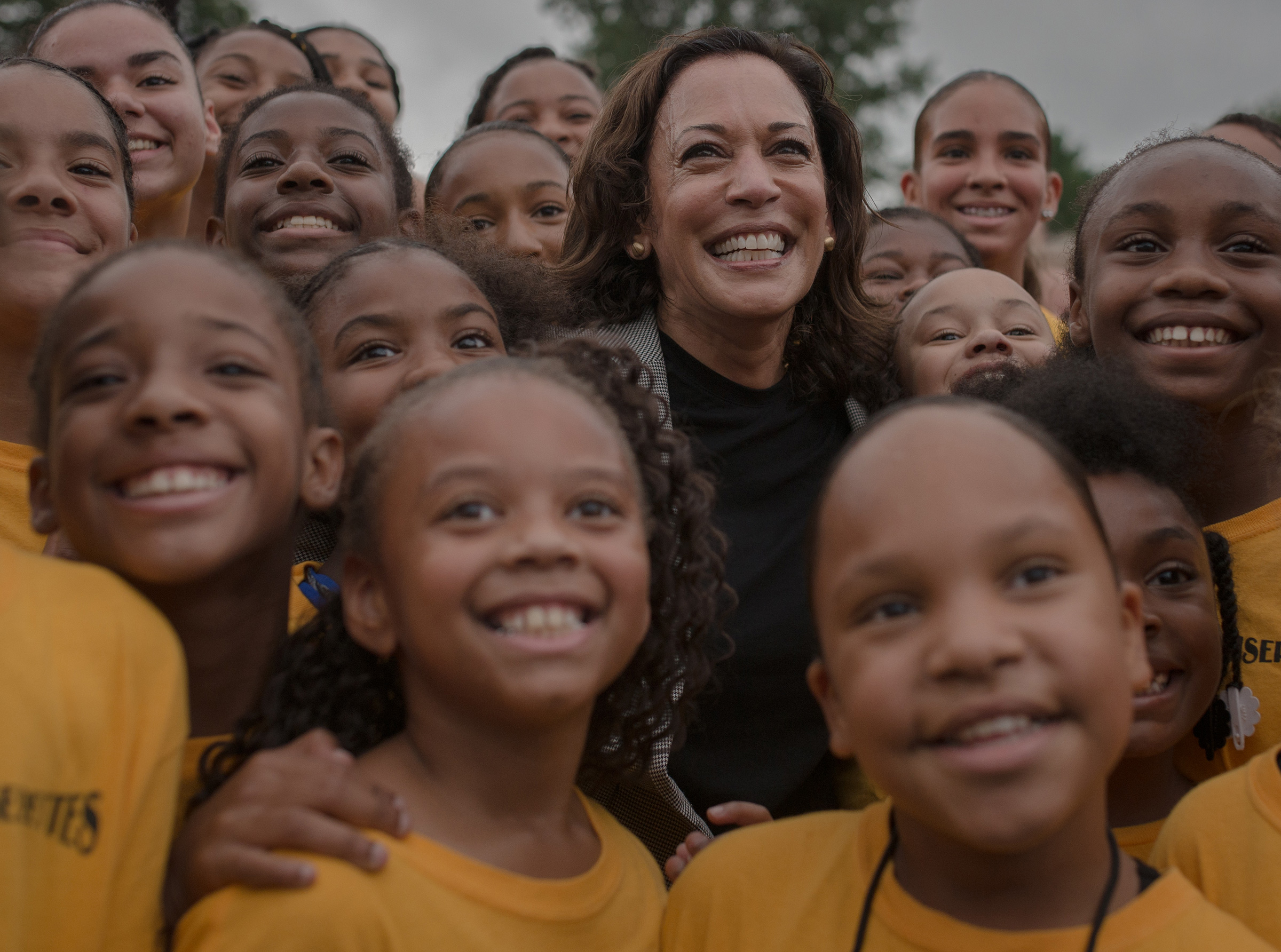
Since her election to the Senate in 2016, Harris has thrilled liberal audiences with her punishing interrogations of Trump Administration officials. She made former Attorney General Jeff Sessions blanch and Supreme Court nominee Brett Kavanaugh squirm. And in May, she deftly filleted the current Attorney General, William Barr, asking him, “Has the President or anyone at the White House ever asked or suggested that you open an investigation of anyone?” Barr was reduced to stuttering. He wouldn’t or couldn’t answer. In recent weeks, the clip has gone viral again as new questions have arisen about Barr’s involvement in the President’s political pressuring of foreign governments.
Sitting in the office in Los Angeles, Harris says she asked that question on a prosecutor’s hunch. “It has become clear to me that these are the kinds of questions you have to ask members of this Administration,” she says. “What kind of unethical requests has this President made of you? I knew by instinct and by example that it is not beyond him to think that America’s justice system is his personal apparatus for political gain. He’s made that quite clear.”
Now that the process to impeach Trump is under way–something Harris called for, but not until several other candidates beat her to it–many liberals fantasize about her as the prosecutor of the impeachment trial in the Senate. The Harris they see in those hearings is the Harris they crave: sharp, ruthless, oppositional. (Unfortunately for her campaign, ethics rules prevent her from using those clips to raise money.) But that’s not the Harris they get on the campaign trail. Presidential candidate Harris wants to be about unity, about uplift, about bringing people together around not a particular agenda but a sense of “who we are.” Campaigning to fix what keeps people up at night, she might just cure America’s insomnia by putting us to sleep with platitudes.
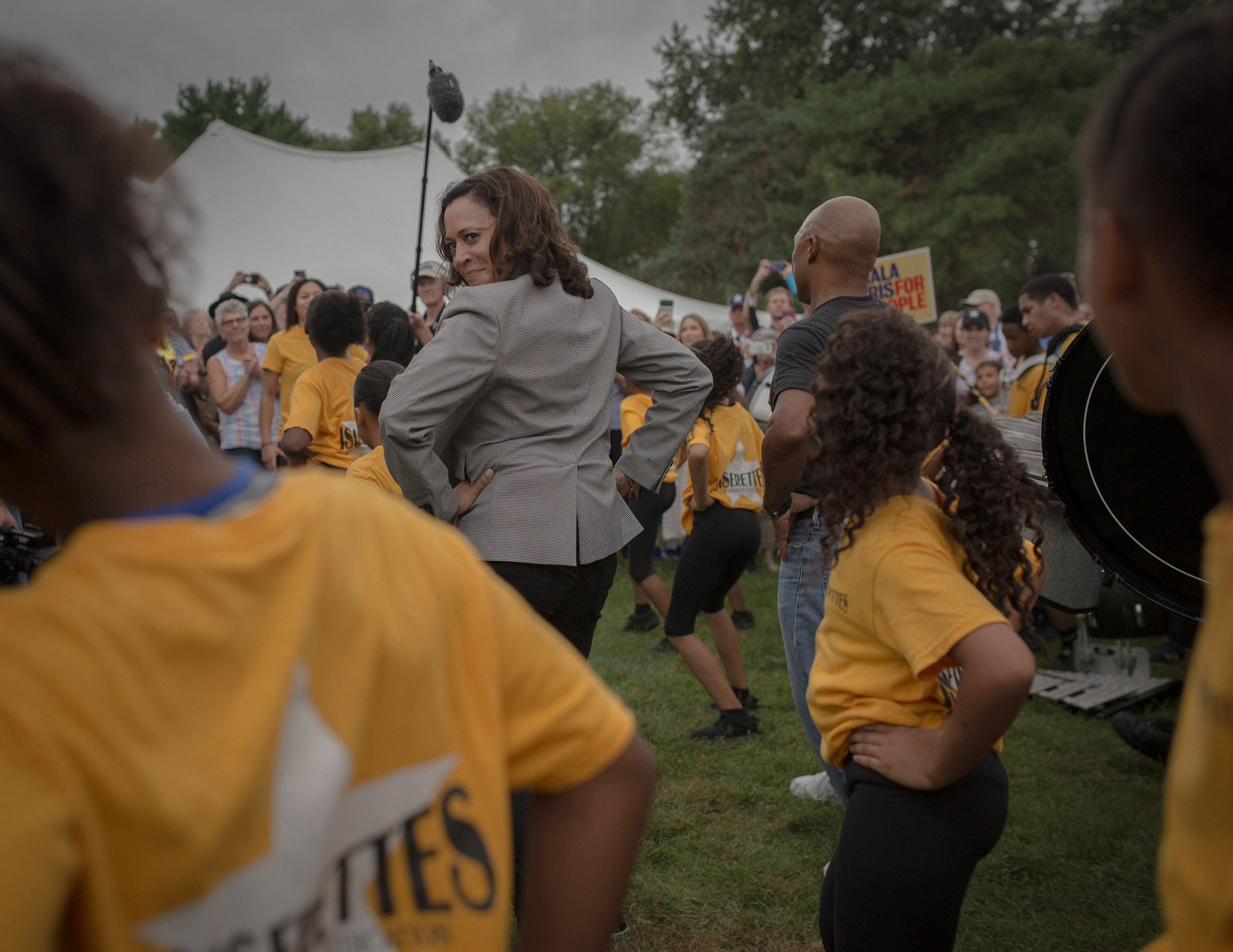
Various commentators have found Harris elusive, and she can be hard to pin down on policy positions. Early in her presidential campaign she called for abolishing private health insurance, then took it back, then later released a health care plan that would be government-run but allow for both public and private health insurance. In the first debate, Harris scored a clean hit on Biden with her attack on his opposition to federally mandated busing in the 1970s, and surged in the polls. But in the ensuing days she couldn’t definitively describe her own position on busing. When I asked her what ought to be done about the ongoing segregation of public schools, she spent several minutes discussing the need to “speak the truth about all of this,” before finally settling on a prescription: “To deal with this issue,” she said, “we need to collect the data and then we need to expose it.”
By upbringing and orientation, Harris seems to have a strong sense of right and wrong and a fierce drive to fight injustice, coupled with virtually no large-scale policy instincts. Presented with a problem, she looks for ways to solve it, starting with data, guided by few firm ideological convictions. “All these grand ideas that academics and so many have about how you’re going to transform the world,” she says. “But, you know, pay attention to the basics.”
Perhaps, in these days of brutal ideological combat, that kind of pragmatism could be sold as refreshing. But in Harris’ case it seems to be having the opposite effect. Some of the attendees at her events in Iowa told me they don’t think she’s progressive enough; others said she strikes them as too far left. “She hasn’t gone far enough to get the activists behind her, but she’s gone too far for some of the moderates,” says Larry Gerston, a professor emeritus of political science at San Jose State University. “So she’s in kind of a no-person’s-land in terms of having a good base.” And yet, polls indicate that Democratic voters still want to like her–if only they can figure out what she’s about. The race is far from over. Iowa voters are notorious for shopping around until the end.
On a clear early-fall day, more than 100 people have come to hear Harris speak in a pub in Coralville. “I like Biden, but I want someone new,” says 71-year-old Jane Carlson, a retired university worker. “I don’t want yesterday. I want tomorrow.”
Harris bounds onto the stage, all gleaming smiles and upbeat energy. “So, I’m moving here!” she says with a big laugh, and then turns serious. “We are at an inflection moment in the history of our country,” she tells the crowd, “a moment in time requiring us to look in the mirror and ask a question, that question being, Who are we?”
While Harris is still speaking, a few people begin to trickle out the back of the venue. Elizabeth Warren is holding an event a little ways down the road, they tell me, and they don’t want to miss it.
With reporting by Lissandra Villa/Washington
More Must-Reads from TIME
- Donald Trump Is TIME's 2024 Person of the Year
- TIME’s Top 10 Photos of 2024
- Why Gen Z Is Drinking Less
- The Best Movies About Cooking
- Why Is Anxiety Worse at Night?
- A Head-to-Toe Guide to Treating Dry Skin
- Why Street Cats Are Taking Over Urban Neighborhoods
- Column: Jimmy Carter’s Global Legacy Was Moral Clarity
Write to Molly Ball at molly.ball@time.com
